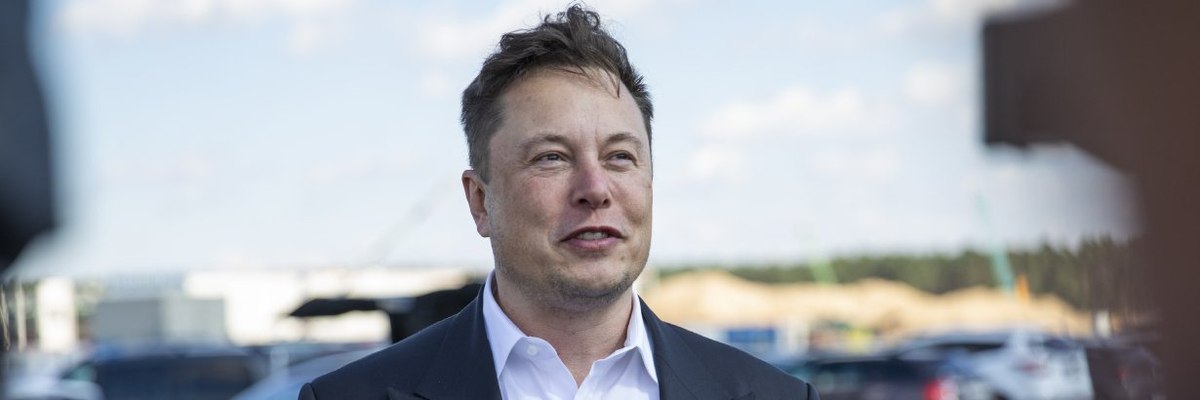Elon Musk is one of those people who want to change the world. He’s hardly alone in that. What makes him so different from most of us is that he can. That’s not only because he has more money than anyone else but because his ambitions match his wealth. He made his first fortune by setting up PayPal since when he has built electric cars, explored space, bored tunnels and now, his latest venture, bought Twitter. Even by his standards, it has cost him a pretty penny: $44 billion to be precise. And he hasn’t done it to make even more money. He has far more lofty ambitions. He wants to rescue free speech. In his own words: "Free speech is the bedrock of a functioning democracy, and Twitter is the digital town square where matters vital to the future of humanity are debated." Whether you are a Twitter user or not do you think free speech is in need of rescuing and, if so, is Elon Musk, the new owner of Twitter, the man to do it?
In a thoughtful essay for The Atlantic, the social psychologist Jonathan Haidt has described the transformation of social media over the years since 2008, when it was widely believed to be a boon to democracy. Facebook was the dominant platform with more than 100 million monthly users. Today it has roughly 3 billion. In 2012, Mark Zuckerberg told potential investors society has reached a tipping point. Facebook, he said, would ‘rewire the way people spread and consume information’. By giving them ‘the power to share,’ it would help them to ‘once again transform many of our core institutions and industries.’
A noble ambition and a promising start, notes Haidt, but things began to change when Facebook and other platforms began offering users a way to publicly ‘like’ posts with the click of a button. Then Twitter introduced something even more powerful: the ‘Retweet’ button, which allowed users to publicly endorse a post while also sharing it with all of their followers. Facebook soon copied that and so did the others. By 2013, social media had become a new game. If you were skilful or lucky, you might create a post that would ‘go viral’ and make you ‘internet famous’ for a few days. If you blundered, you could find yourself buried in hateful comments. Your posts rode to fame or ignominy based on the clicks of thousands of strangers and you, in turn, contributed thousands of clicks to the game. This new game, says Haidt, encouraged dishonesty and mob dynamics. Users were guided not just by their true preferences but by their past experiences of reward and punishment, and their prediction of how others would react to each new action. One of the engineers at Twitter who had worked on the ‘Retweet’ button later revealed that he regretted his contribution because it had made Twitter a nastier place. As he watched Twitter mobs forming through the use of the new tool, he thought to himself, ‘We might have just handed a 4-year-old a loaded weapon.’ Many recent academic studies share that rather scary view. One recent review found that, on balance, social media amplifies political polarisation; foments populism, especially right-wing populism; and is associated with the spread of misinformation.
And now we have the richest man in the world taking over what has become the most influential news and social networking service in the world. An explosive combination... although opinion is sharply divided as to whether we should welcome a Musk-controlled Twitter or fear it. The Times
points out that many of Musk’s own tweets have been less than ‘dignified.’ It notes that less than a week ago he was on Twitter abusing the Microsoft founder and philanthropist Bill Gates by likening him to a cartoon of a pregnant man. In the past he has been fined twice by the American Securities and Exchange Commission (SECC) for tweets which affected Tesla's stock price, at least one of which he meant as a joke. He famously abused a British caver who helped to rescue schoolboys trapped in a Thai cave as ‘pedo guy’. He once likened Justin Trudeau, the Canadian prime minister, to Hitler.
It concedes that In recent years Twitter has developed a reputation for ‘hosting trolling, abuse and fake news’ but claims that it is now becoming more circumspect. In January last year, it banned Donald Trump while he was still president of the United States, for allegedly inciting his followers to violence after what he claimed was a rigged election result. It had already begun affixing warnings and labels to tweets deemed dangerous or false, and to those by state-affiliated media. Among some American conservatives, it had become an article of faith that the site is biased against them and in favour of the so-called progressives.
Central to Mr Musk's desire to take over Twitter, says The Times, seems to be his sense that ‘the site's moderation has gone too far.’ In Washington, Westminster and Brussels, however, legislators are moving in the opposite direction. This country's long-awaited Online Safety Bill aims to place more obligations on social media companies. The Times is one of many newspapers that believes Twitter and similar sites should have more, not less, responsibility for the content they host.
The journalist Mick Hume has called his latest book: ‘Trigger Warning: Is The Fear Of Being Offensive Killing Free Speech?’ and he welcomes the Musk takeover. He writes: ‘The hard truth about free speech is that not everybody who chooses to post, pontificate, rant or rage on Twitter will share the same views as you. But that should never mean that their rights to freedom of expression are any less.’ Their claim that Musk's ownership will cause Twitter to descend into fascism is the deepest irony because it is only through the free speech Musk espouses that democracy can flourish.’
If you doubt that, says Hume ‘ just take a look at the censorship of social media that Vladimir Putin has imposed to whitewash his barbaric and criminal activities in Ukraine. In truth, those on the Left are up in arms about the takeover because they risk losing control of the global conversation on Twitter, perhaps the most powerfully vocal social media outlet in the world. The Twitterati are always astonished and outraged whenever the actual public don't agree with their opinions. For them, the 2016 EU referendum and the 2019 General Election are glaring examples of the 'wrong' sort of democracy in action.’
Unsurprisingly Marina Hyde in The Guardian takes the opposite view: ‘Quite where we’ll be in six months’ time as far as Twitter is concerned remains tantalisingly unclear, but it seems difficult to imagine it will be either a more or less pleasant space. It’s a social media platform. I’m not sure what further evidence humanity needs before we cotton on to the idea that such a thing might be an intrinsically toxic concept.
Musk, she says, is assuming control of a platform ‘where the people on the right are incredibly angry about free speech, and those on the left are incredibly angry about hate speech. Which is to say: they have so much in common. As the tech visionary, Jaron Lanier has long been excellent at pointing out, the best way to keep people on platforms is to make them angry. So the platforms are designed to make them angry. You might consider the anger worth it for your version of advertising (I myself will post this column on Twitter), but even then it is a weirdly grim cost of doing business that just conceivably ought to be weighed far more carefully than it is.’
Hyde describes Musk as a ‘brilliant, horrid, ridiculous and very occasionally endearing grotesque. A sort of intergalactically successful Dominic Cummings. And yet, despite Elon’s give-a-toss gift for
making himself what Twitter users might call the “main character”, I can’t detest him entirely. If he pulls off the radical green energy transition embodied in Tesla, or even just one of his other wildly ambitious schemes, humans might have to accept some of the shit that’s gone with it. Accept it angrily, of course – how else, we’re on a social media platform! – but accept it nonetheless. A huge number of other people in public life behave appallingly and achieve absolutely nothing but harm.’
So where do you stand in this debate? Do you believe that Twitter is a threat to free speech or an enabler of it? And do you regard Musk as a potential saviour of our democracy or a threat? And what about your own relationship with Twitter? Do you contribute to the debate at every possible opportunity or simply read what others have to say? Or neither!
Let us know











